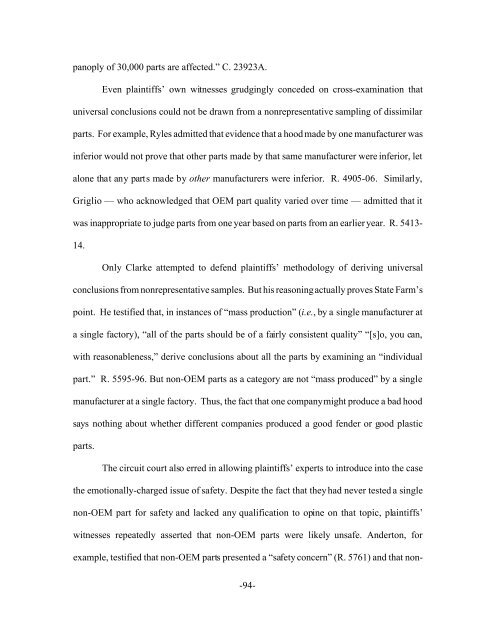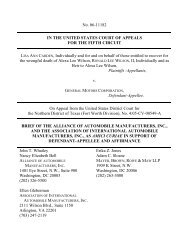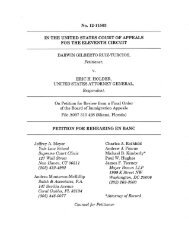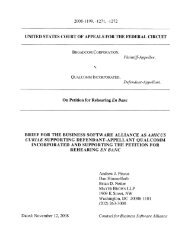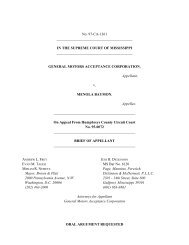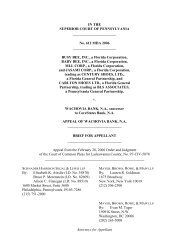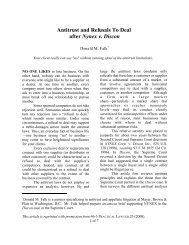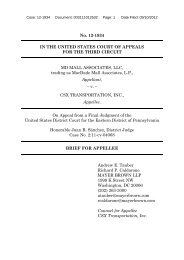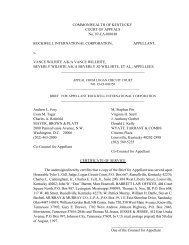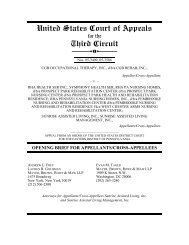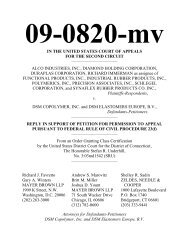No. 5-99-0830 IN THE APPELLATE COURT OF ... - Appellate.net
No. 5-99-0830 IN THE APPELLATE COURT OF ... - Appellate.net
No. 5-99-0830 IN THE APPELLATE COURT OF ... - Appellate.net
You also want an ePaper? Increase the reach of your titles
YUMPU automatically turns print PDFs into web optimized ePapers that Google loves.
panoply of 30,000 parts are affected.” C. 23923A.<br />
Even plaintiffs’ own witnesses grudgingly conceded on cross-examination that<br />
universal conclusions could not be drawn from a nonrepresentative sampling of dissimilar<br />
parts. For example, Ryles admitted that evidence that a hood made by one manufacturer was<br />
inferior would not prove that other parts made by that same manufacturer were inferior, let<br />
alone that any parts made by other manufacturers were inferior. R. 4905-06. Similarly,<br />
Griglio — who acknowledged that OEM part quality varied over time — admitted that it<br />
was inappropriate to judge parts from one year based on parts from an earlier year. R. 5413-<br />
14.<br />
Only Clarke attempted to defend plaintiffs’ methodology of deriving universal<br />
conclusions from nonrepresentative samples. But his reasoning actually proves State Farm’s<br />
point. He testified that, in instances of “mass production” (i.e., by a single manufacturer at<br />
a single factory), “all of the parts should be of a fairly consistent quality” “[s]o, you can,<br />
with reasonableness,” derive conclusions about all the parts by examining an “individual<br />
part.” R. 5595-96. But non-OEM parts as a category are not “mass produced” by a single<br />
manufacturer at a single factory. Thus, the fact that one company might produce a bad hood<br />
says nothing about whether different companies produced a good fender or good plastic<br />
parts.<br />
The circuit court also erred in allowing plaintiffs’ experts to introduce into the case<br />
the emotionally-charged issue of safety. Despite the fact that they had never tested a single<br />
non-OEM part for safety and lacked any qualification to opine on that topic, plaintiffs’<br />
witnesses repeatedly asserted that non-OEM parts were likely unsafe. Anderton, for<br />
example, testified that non-OEM parts presented a “safety concern” (R. 5761) and that non-<br />
-94-


